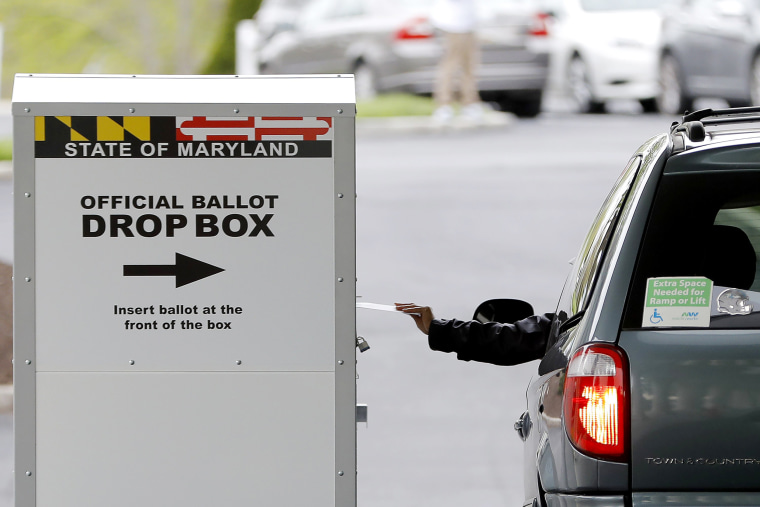Donald Trump told Politico late last week that he and his party are fighting in the courts to make it harder for Americans to cast ballots through the mail during the pandemic.
"My biggest risk is that we don't win lawsuits," the president said. "We have many lawsuits going all over. And if we don't win those lawsuits, I think -- I think it puts the election at risk."
With this in mind, Trump apparently feels the need to up the ante. He published this tweet earlier today. (The capitalization was in the original.)
"RIGGED 2020 ELECTION: MILLIONS OF MAIL-IN BALLOTS WILL BE PRINTED BY FOREIGN COUNTRIES, AND OTHERS. IT WILL BE THE SCANDAL OF OUR TIMES!"
If this sounds at all familiar, it's because it was just a few weeks ago when Attorney General Bill Barr floated a theory to the New York Times, raising the prospect of foreign governments conspiring to mail in fake ballots. The Republican lawyer had no evidence to substantiate the claim, but he added that he's "real worried" about foreign countries "that could easily make counterfeit ballots, put names on them, send them in. And it'd be very hard to sort out what's happening."
Since Trump apparently expects the public to take this seriously, let's circle back and review why this is foolish.
States that have already embraced postal balloting have implemented safeguards, including bar codes, that make the prospect of a foreign actor "easily making counterfeit ballots" impossible.
What's more, vote-by-mail programs rely on signed security envelopes that, again, prevent the scenario the attorney general described. The Washington Post reported recently that elections officials in multiple states "said it would be virtually impossible for a foreign government to achieve what Barr described."
States use a variety of safeguards to confirm the validity of mail ballots. In about half the states, ballot envelopes bear a tracking bar code or tally mark that is unique to each voter. About 15 states require signatures to be matched against voter registration. Ballots are rejected if they are not sent in regulation envelopes that vary widely from state to state in format, size and paper stock. And there is little chance, administrators said, that election officials would not detect a surge of duplicate ballots arriving from the same voter.
The article quoted Colorado's elections chief saying "there is zero chance" Barr's -- and now Trump's -- theory could happen in reality.
And yet, it's a near certainty that the president and his team will continue to repeat the claim anyway.

